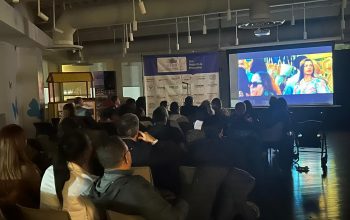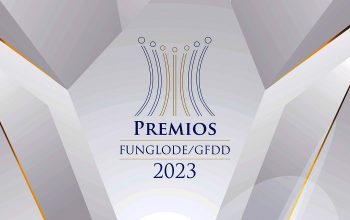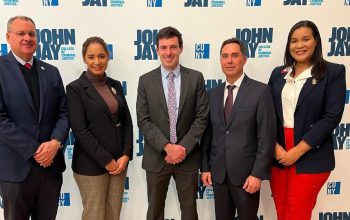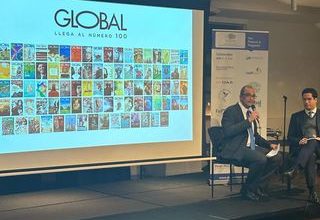news
GFDD Partners with UBUNTU to Convene Side Event, Food, Sustainability and Global Democracy: Challenges and Perspectives, during Rio + 20 Conference
June 11, 2012Global Foundation for Democracy and Development (GFDD) is partnering with UBUNTU – World Forum on Civil Society Networks to coordinate the side event “Food, sustainability and global democracy: challenges and perspectives” on June 18 from 9:30 am – 11:00 am, in room T-8, in Rio de Janiero, Brazil, during the framework of the Sustainable Development Dialogues leading up to the United Nations Conference on Sustainable Development (Rio +20), to be convened
June 20-22.
Access to food is a basic human right, and the foundation for a decent life. With over a billion people suffering from hunger worldwide, the development of effective and efficient solutions must be viewed as a moral imperative. Since the onset of the 2008 global economic and financial crisis, levels of hunger and malnutrition have surged, resulting, in 2009 alone, in the addition of some 150 million additional persons afflicted by hunger.
The side event will promote multi-stakeholder debate to assess existing alternatives to eradicate hunger and ensure for food security. Central topics of discussion will include the right to food; food sovereignty; lack of coherence in global governance; the establishment of mechanisms to reduce price volatility and financial speculation of commodities; the commodification of nature; the role of instrumental intergovernmental organizations such as FAO, IFAD and WFP; and the
functions of the Committee on World Food Security.
Presentations will be delivered by Natasha Despotovic, Executive Director of Global Foundation for Democracy and Development (GFDD) and Federico Mayor Zaragoza, former Director General of UNESCO and Chair of the UBUNTU Forum. Dialogue will be moderated by Manuel Manonelles, Director of the UBUNTU Forum.
Ms. Despotovic will present the innovative perspectives of Global Foundation for Democracy and
Development on the impacts of financial speculation on food security and global democracy. She will discuss how excessive speculative activity has led to extreme spikes in the prices of food and related commodities, impeding the achievement of Millennium Development Goal 1, eradication of extreme poverty and hunger, and other international development targets.
Most analysts have identified many issues that have contributed to the sharp rise in food commodity prices,
including: non-seasonal droughts; the rise of oil prices, which leads to increases in the price of fertilizers, pesticides and transportation; increased use of agricultural products for biofuels; greater demand for more diversified diets, including meat products; furtherance of production and export subsidies for agricultural commodities by developed countries; climate change; demographic shifts; restrictions on exports in food-exporting countries; and lack of investment in agricultural
research and productivity. Few, however, have identified the role of speculation in futures markets as a cause for concern.
Ms. Despotovic will highlight the important inter-linkage between commodities future markets, food sovereignty and the right to food. She will also describe the groundbreaking work spearheaded by Dr. Leonel Fernández, President of the Dominican Republic and Honorary President of Global Foundation for Democracy and Development (GFDD) and Fundación
Global Democracia y Desarrollo (FUNGLODE), which resulted in the proposal of the resolution “Addressing Excessive Price Volatility in Food and Related Financial and Commodity Markets” (A/RES/66/188). The resolution was adopted by consensus by the United Nations General Assembly on December 22, 2011. A/RES/66/188 called for the United Nations General Assembly to convene a High Level Thematic Debate on the effects of excessive speculative activity on food and related
commodity markets.
The first-ever High Level Thematic Debate “Addressing Excessive Price Volatility in Food and Related Financial and Commodity Markets,” took place on April 11, 2012 at United Nations Headquarters in New York.
The objectives of the debate were four-fold: 1) contribute towards developing a global consensus on the impacts of excessive speculative activity on commodity futures markets; 2) promote robust dialogue on how
to best address excessive speculation in food and related commodity markets; 3) begin a process in which Member States assess and monitor the effects of excessive speculative activity; 4) advance global governance and the achievement of the Millennium Development Goals (MDGs).
The event featured a keynote address by President Fernández and presentations by finance specialists: Michael Greenberger (Professor, University of Maryland School of Law), David Hallam (Director,
Trade and Markets Division, FAO), Jeffery Sachs (Director, The Earth Institute, Professor Sustainable Development and Health Policy Management, Columbia University), Heiner Flassbeck (Director, Global Development Strategies, UNCTAD); Wei Xiong (Professor of Economics, Princeton University); Daniel Titelman (Chief, Financial Development Division, ECLAC); Keiichi Miyata (Director and Head, Financial Infrastructure Studies Division, IMF); Frederick Kaufman (Professor of Journalism, CUNY); José
Antonio Ocampo (Professor of Professional Practice in International and Public Affairs at Columbia University); Peter Kerstens (Counsellor, Economic and Financial Affairs Section, European Commission); and Bruce Tozer (independent expert and commodities trader).
Stakeholders called for the creation of a permanent multidisciplinary working group to continue the tasks proposed during the April 11th meeting, to complement the ongoing work of the Secretary General’s
High Level Task Force on the Global Food Security Crisis and the Committee (2008) on World Food Security (2009).
The United Nations Conference on Sustainable Development (Rio + 20) will take place twenty years after the 1992 Earth Summit in Rio, where Member States adopted Agenda 21, a framework from which to reconsider challenges related to economic growth, social equity and environmental protection. Nine days from now, Member States, international institutions and major
groups will meet once again to strategize a new framework for global sustainable development that establishes future paths towards achieving poverty reduction, decent jobs, clean energy and protection and sustainable use of natural resources.
GFDD looks forward to being part of this historic event.
For more information, contact Margaret Hayward:
Email: margaret@globalfoundationdd.org
Telephone: 212.751.5000
Related links:
http://www.uncsd2012.org/rio20/about.html
www.ubuntu.com





